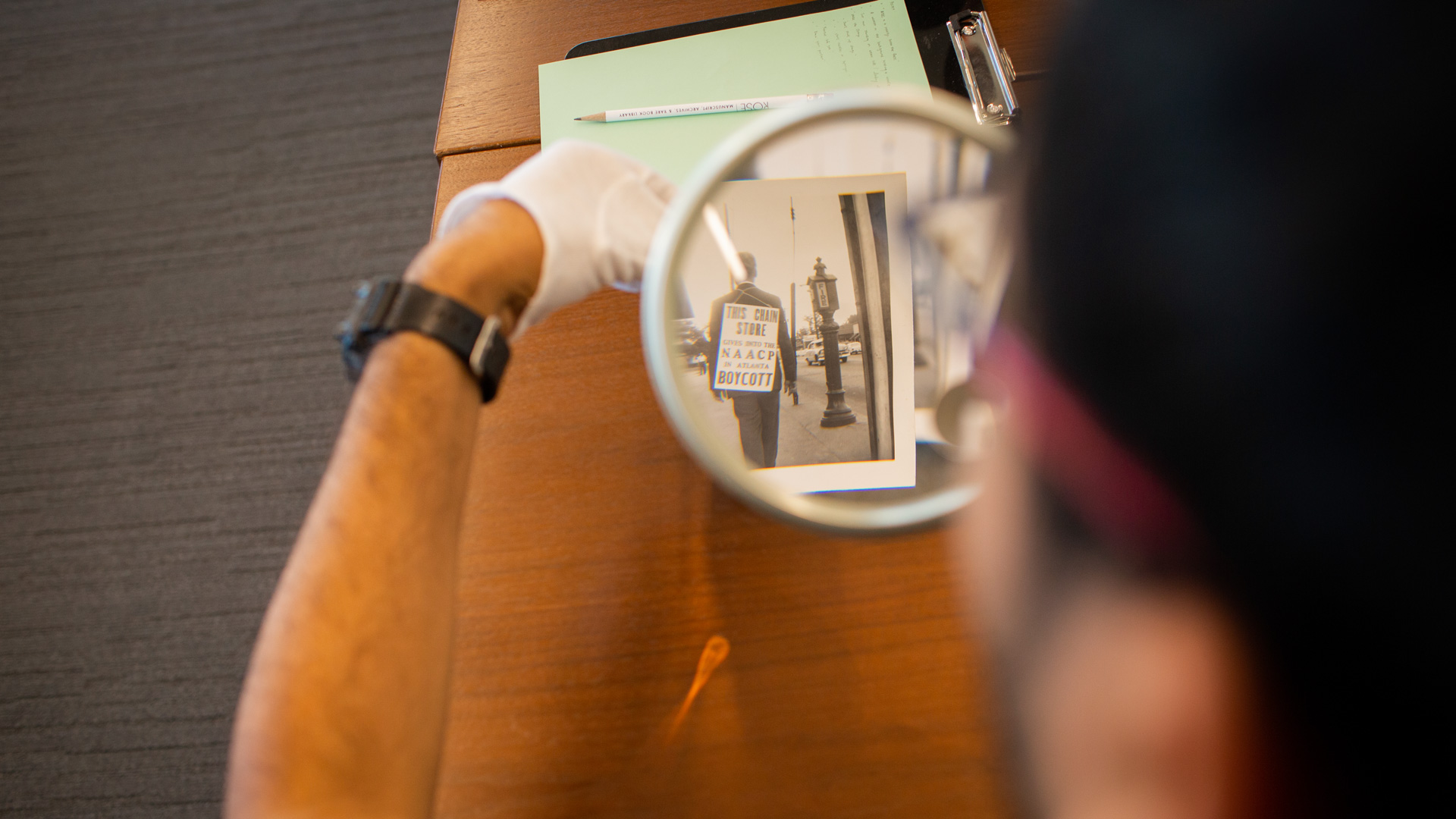
Doctoral students at Emory produce cutting-edge scholarship that contributes to literatures across an array of regions, periods, and disciplines. Here's how.
Path to the Ph.D.
The History Ph.D. program encompasses coursework, examinations demonstrating language facility, a comprehensive portfolio, and the research and writing of a doctoral dissertation.
Normally, students will take coursework for two academic years, the Comprehensive Portfolio in the fall of the third year, and, upon passing the portfolio, proceed to the dissertation. Upon passing the Comprehensive Portfolio and approval of the Prospectus, students are eligible to apply for admission to Ph.D. candidacy.
In addition to the LGS requirements for candidacy, History PhD students must complete all coursework, pass their language examinations, pass the Comprehensive Portfolio, and successfully defend their dissertation prospectus. Typically, students will have also completed TATT: 610 Teaching Associateship before entering candidacy.
The interim master's degree is earned on the basis of Ph.D. candidacy. The Laney Graduate School requires that students take no more than seven years to complete their dissertations.
Read more about the Path to the Ph.D.
Comprehensive Portfolio
From Prospectus to Dissertation
After passing the comprehensive portfolio, students begin work producing the prospectus. The prospectus is a brief explanation of the projected dissertation, outlining the proposed research, defining its validity as a dissertation subject, and suggesting the principal sources to be employed (plus bibliography).
The student presents the prospectus in a public presentation and defense of the dissertation project. Following approval of the prospectus, doctoral candidates undertake the final component of the Ph.D.: conducting fieldwork and composing the dissertation. Students work closely with their dissertation committees throughout both stages of this process.
Departmental Awards and Prizes
The Department has several named awards that support graduate students in their dissertation research and travel, along with others that acknowledge outstanding scholarship and contributions to the department.
Read more about these awards and prizes and browse through lists of past winners.